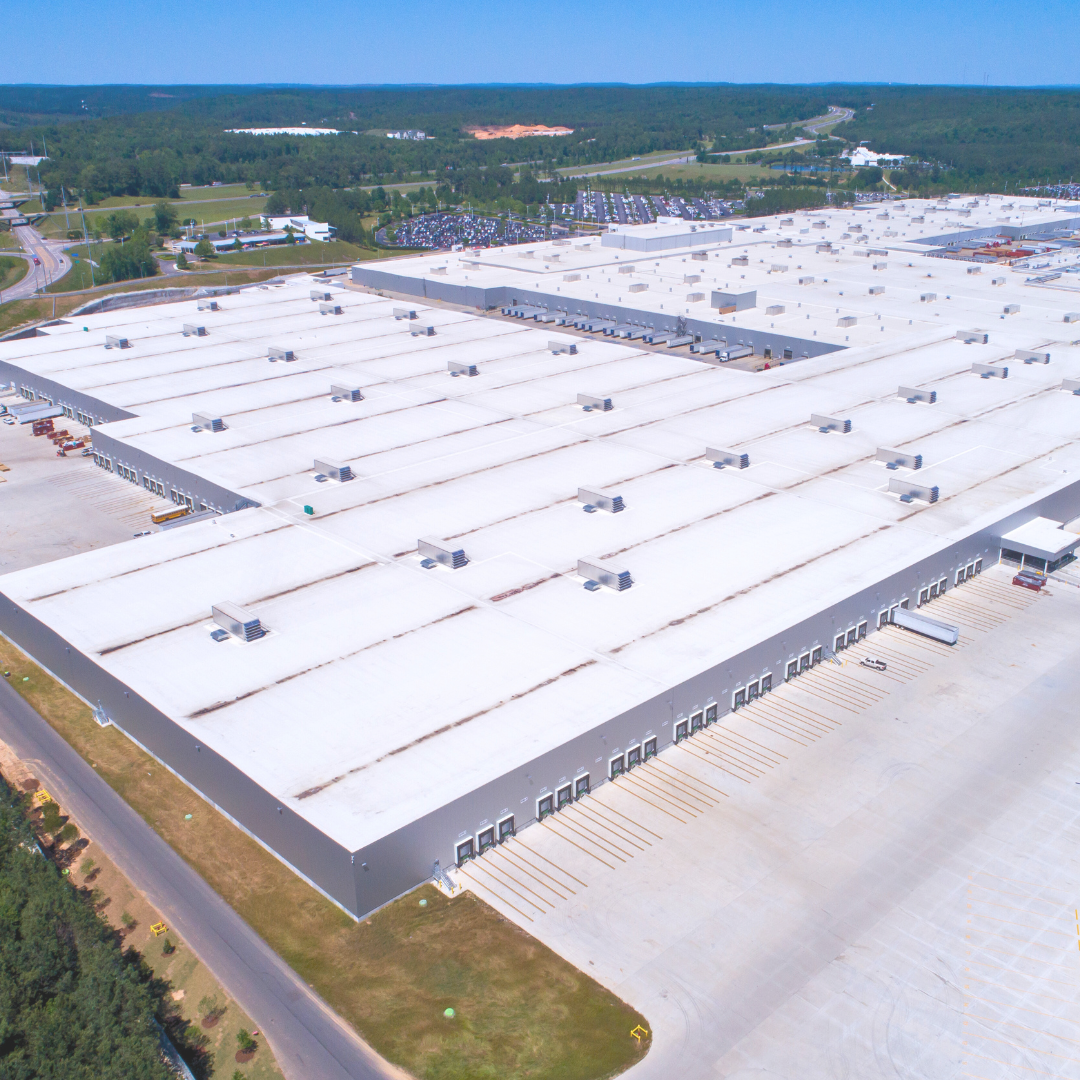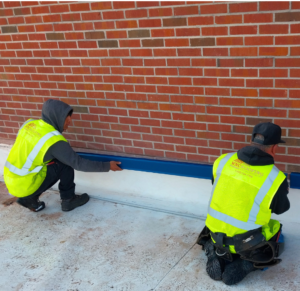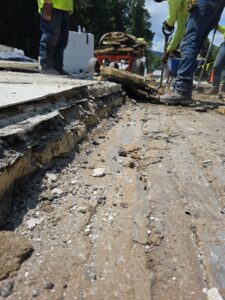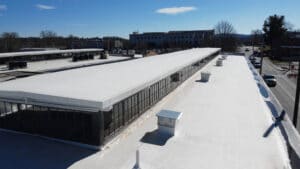Impact of The “One Big Beautiful Bill” on Commercial Projects
President Trump’s “One Big Beautiful Bill,” signed into law on July 4, 2025, introduces significant tax reforms affecting commercial construction and roofing projects. Below is an overview of the top benefits and potential drawbacks for those involved in large construction and roof replacements.
Top Benefits for Large Construction and Roofing Projects
- Increased Section 179 Expensing Limit: The bill raises the Section 179 deduction limit from $1 million to $2.5 million, with a phase-out threshold increasing from $2.5 million to $4 million. This allows businesses to fully expense the cost of qualifying property in the year it’s placed in service. 1
- Restoration of 100% Bonus Depreciation: The bill restores 100% bonus depreciation for qualified property acquired on or after January 20, 2025. This provision allows businesses to immediately deduct the cost of eligible property, including certain roofing improvements. 2
- Enhanced Section 199A Pass-Through Deduction: The bill increases the Section 199A deduction to 23% for qualified business income from pass-through entities. This change benefits roofing contractors and other small businesses organized as pass-through entities. 3
- Business Interest Deduction on Real Property Stays: The bill preserves the current deduction of interest expenses on real property. This protects investors using loans from losing write-offs on mortgage interest. This is especially important if interest rates stay high. 4
Potential Drawbacks
- Scheduled Termination of Section 179D Deduction: The bill terminates the Section 179D deduction for energy-efficient commercial building property for projects beginning construction after June 30, 2026. This deduction has been a valuable incentive for energy-efficient roofing and building envelope upgrades. 5
- Phase-Out of Green Tax Credits: The bill accelerates the phase-out of several green tax credits, including the Energy Efficient Home Improvement Credit (Section 25C) and the Residential Clean Energy Credit (Section 25D), both terminating for property placed in service after December 31, 2025. These credits have supported energy-efficient improvements in residential and commercial properties. The reduced availability of these incentives may impact the financial feasibility of energy-efficient roofing projects. 6
- Reversal of IRA Green Incentives: The bill eliminates many IRA-era green tax credits, including 179D, 45L, and electric vehicle credits. 179D terminates for properties beginning construction after June 30, 2026. This reversal requires developers and energy companies to revisit project economics for renewable energy initiatives, potentially affecting the integration of energy-efficient technologies in roofing projects. 7
Strategic Considerations
- Accelerate Project Timelines: To capitalize on the Section 179D deduction and other expiring incentives, consider expediting project planning and construction activities. 8
- Consult Tax Professionals: Engage with tax advisors to navigate the complexities of the new tax provisions and to optimize tax benefits for your specific projects. 9
- Evaluate Financing Options: Explore financing solutions that align with the new tax incentives, such as utilizing the restored 100% bonus depreciation to offset initial costs. 10
For more detailed information on these changes and their impact on your construction and roofing projects, stay informed and consult with your tax advisor.
If you are ready to do major roofing project, contact us here and let us work together on solving your roofing issues and possibly save you some money on your taxes.
Here is an interesting article on how this bill affects Architects

Konrad
Business Development Manager
Konrad Schimmel is the Business Development Manager at WNC Roofing, bringing over 19 years of experience in sales, marketing, and business development. With 3 years of industry experience in commercial roofing, he combines technical knowledge with a customer-focused approach to deliver tailored roofing solutions and information. Since joining WNC Roofing in 2022, Konrad has played a key role in expanding the company’s presence across Western North Carolina and Upstate South Carolina. Konrad uses personal knowledge, research and the wealth of knowledge and experience in the WNC Roofing office to produce quality and informed content.



